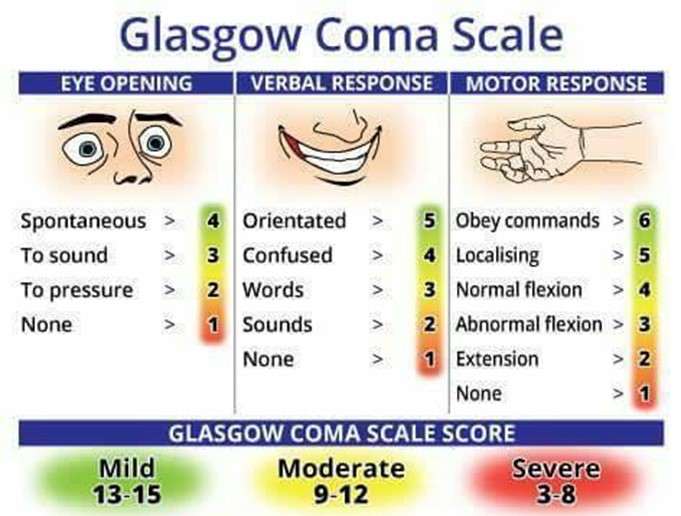A blind client reports that they are having difficulty with sleep that is affecting their daytime activities. Which of the following will the nurse include in her plan of care for the client?
Referral to a sleep study program
Assisting client to see if a night shift job is available
Institution of opioids and sedatives
Education about non-24 disorder
The Correct Answer is D
Choice A Reason: This is incorrect because a referral to a sleep study program is not the most appropriate plan of care for a blind client who has difficulty with sleep. A sleep study program is used to diagnose and treat sleep disorders such as sleep apnea, narcolepsy, or restless legs syndrome.
Choice B Reason: This is incorrect because assisting the client to see if a night shift job is available is not a helpful plan of care for a blind client who has difficulty with sleep. A night shift job can disrupt the circadian rhythm and worsen the sleep quality and quantity of the client.
Choice C Reason: This is incorrect because institution of opioids and sedatives is not a safe plan of care for a blind client who has difficulty with sleep. Opioids and sedatives can cause addiction, dependence, tolerance, and withdrawal symptoms. They can also impair the respiratory and cognitive functions of the client.
Choice D Reason: This is the correct choice because education about non-24 disorder is an essential plan of care for a blind client who has difficulty with sleep. Non-24 disorder is a condition where the internal clock of the body does not synchronize with the 24-hour day-night cycle. It can cause irregular sleep patterns, daytime fatigue, and mood disturbances. It is more common in blind people who lack light perception. The nurse should educate the client about the causes, symptoms, and treatments of non-24 disorder.
Nursing Test Bank
Naxlex Comprehensive Predictor Exams
Related Questions
Correct Answer is A
Explanation
Choice A Reason: This is correct because first degree burns are superficial burns that affect only the outer layer of the skin, called the epidermis. First degree burns cause redness, pain, and mild swelling, but no blisters or scarring. They usually heal within a week.
Choice B Reason: This is incorrect because second degree burns are partial thickness burns that affect both the epidermis and the underlying layer of the skin, called the dermis. Second degree burns cause blisters, severe pain, and possible infection. They may take several weeks to heal and may leave scars.
Choice C Reason: This is incorrect because third degree burns are full thickness burns that destroy all layers of the skin and may damage the underlying tissues, such as muscles, nerves, or bones. Third degree burns cause charred or white skin, numbness, and shock. They require skin grafting and may cause permanent disability or death.
Choice D Reason: This is incorrect because this burn can be classified according to the depth and extent of the skin damage. The classification of burns helps to determine the appropriate treatment and prognosis for the client.
Correct Answer is B
Explanation
Choice A reason: This is incorrect because preparing the client for an X-ray is not the first action that the nurse should take. An X-ray can help diagnose possible injuries or fractures, but it is not an urgent test. The nurse should first assess the client's level of consciousness and neurological status using a standardized tool such as the Glasgow Coma Scale.
Choice B reason: This is the correct answer because calculating a Glasgow Coma Score is the first action that the nurse should take. The Glasgow Coma Scale is a tool that measures the level of consciousness based on the eye-opening, verbal response, and motor responses. It can help determine the severity of brain injury and guide further interventions.
Choice C reason: This is incorrect because dimming the lights and turning off the TV are not the first actions that the nurse should take. These are environmental modifications that can help reduce sensory stimulation and prevent agitation or seizures, but they are not as important as assessing the level of consciousness and neurological status.
Choice D reason: This is incorrect because providing analgesics is not the first action that the nurse should take. Analgesics can help relieve pain and discomfort, but they can also alter the level of consciousness and mask neurological signs. The nurse should first assess the level of consciousness and neurological status, and then administer analgesics as prescribed.

Whether you are a student looking to ace your exams or a practicing nurse seeking to enhance your expertise , our nursing education contents will empower you with the confidence and competence to make a difference in the lives of patients and become a respected leader in the healthcare field.
Visit Naxlex, invest in your future and unlock endless possibilities with our unparalleled nursing education contents today
Report Wrong Answer on the Current Question
Do you disagree with the answer? If yes, what is your expected answer? Explain.
Kindly be descriptive with the issue you are facing.
